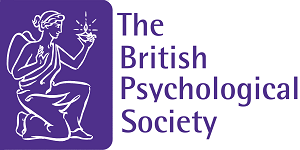Course summary
Our fully online MSc Psychology (conversion) comprises a Master of Science programme that will provide you with Graduate Basis for Chartership with the British Psychological Society. This offers equivalent recognition to successfully completing a British Psychological Society accredited undergraduate psychology degree, which is an essential requirement to enable you to pursue a career in most recognised psychology professions.
The programme, which requires no prior knowledge of the subject, will provide you with a solid grounding across the breadth of psychology. As you start the programme you will be introduced to the foundational elements of social psychology, developmental psychology, cognitive psychology and biological psychology. You will also cover personality and individual differences, and alongside these core components you will develop both qualitative and quantitative research methods applied in psychology. In the second semester you will continue to develop your core psychological knowledge but we will also broaden your thinking. The module “Grand Challenges in Psychology” will enable you to place your knowledge of psychology in the context of the wider world. The module “Applying Psychology” will lead you to reflect on the skills you have developed and how to articulate them to future employers or education providers, preparing you for the next steps in education or employment. Throughout the programme, you will undertake a dissertation project, working with one-to-one guidance from an active psychology researcher.
We know that many students choose to study an MSc Psychology (conversion) programme because they are changing careers, and so our programme has been developed with this in mind. Our assessments have been designed to help you develop skills that are relevant for the workplace, rather than merely testing your knowledge. The foundational knowledge you will gain is rigorous – postgraduate study will lead you to develop a deep knowledge of the discipline. Studying at Keele School of Psychology you will have access to a wide variety of teams and individuals to support your future career after you graduate. Additionally, the School and University run a broad array of events in which you will get to interface with industry professionals (e.g., Clinical or Forensic Psychologists). The ethos of the programme is to provide a rigorous education in psychology that you can undertake around existing commitments, with an underlying goal of getting you ready for the next steps in your career.
Principle areas of study
Biological Psychology
Explore the structure and function of the brain, neuronal impulses and how we make sense of sensory stimuli.
Cognitive Psychology
Examine topics including attention, perception, learning, memory, thinking, problem solving, decision making, metacognition, language, consciousness and cognitive neuropsychology.
Developmental Psychology
Study typical and atypical development across the lifespan including childhood, adolescence and ageing, attachment, social relations, cognitive and language development and cultural development.
Individual Differences
Consider the unique characteristics or traits that make us who we are and that differentiate us from others.
Social Psychology
Explore topics including social cognition, attribution, attitudes, group processes and intergroup relations, culture, close relationships, social constructionism, self and identity, and leadership.
Conceptual and Historical Issues
Consider psychology as a science and the challenges it has faced and continues to face; how society and culture influences psychology and how psychology influences them; the big ethical and political issues within the discipline; and how we might integrate different perspectives into our understanding of psychology.
Research Methods
Learn the fundamentals for conducting your own qualitative and quantitative research whilst developing the skills to think critically about published research by others.
Dissertation
Throughout the programme you will have the opportunity to work with the guidance of one of our expert academics to carry out and report an investigation of a research topic that aligns with your career aspirations or personal interests. Psychology dissertations from previous students include:
· Cognitive control and depression
· Experiences of disabled students in Higher Education
· Sleep and mental health
· Detecting deception in others
· Victims and forgiveness
Committed to equality, diversity and inclusion
As a University and as a School, we are committed to equality, diversity and inclusion. This means we aim to create a diverse and inclusive culture in which you can thrive. Our Equality, Diversity and Inclusion (EDI) agenda is embedded throughout our curriculum, and the School of Psychology are proud to have been recognised for our activities in this area by holding The Athena SWAN bronze award.
Student support
We pride ourselves on our multi-layered student support structure. Within the School of Psychology you will have access to an Academic Mentor who will support your academic development, an Academic Support Team offering a range of workshops on key academic skills and bookable 1-2-1 sessions, and a Disability Liaison Officer who will support any additional needs you may have. In addition to the School's support offering, Keele Student Services is also your one-stop-shop for information and support. The team can offer guidance on a range of areas including;
- · Disability and dyslexia
- · Money advice and guidance
- · Your welfare and wellbeing
Additionally, as a developing professional in Psychology you will have access to the University Careers and Employability team and also our dedicated Psychology Careers Tutor. There’s a broad array of support for your career ambitions, from potential jobs, to C.V. tailoring and proofreading, to detailed ideas about what additional experiences might enhance your C.V. ready for the next step.






